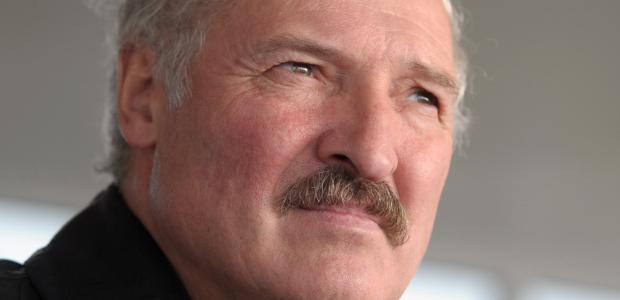
Year-End Turbulence in Belarus
Publication: Eurasia Daily Monitor Volume: 12 Issue: 3
By:

In the second half of December 2014, five interrelated themes engaged media attention: the last salvos of the Belarus-Russia trade war (see EDM, December 3, 2014); Russia’s reactions to Belarusian President Alyaksandr Lukashenka’s statements regarding this war and his trip to Kyiv; Lukashenka’s speech at the meeting of the Eurasian Economic Council in Moscow; the de facto devaluation of the Belarusian ruble; and the reshuffling of the Belarusian government.
On the trade war, Lukashenka proclaimed that “limiting Belarusian meat export to Russia is a stupid and brainless policy” (Tut.by, December 19, 2014). He accused Russia’s agrarian lobby of foul play and claimed that Vladimir Putin had not been informed about the hostile actions of Rosselkhoznadzor, Russia’s agricultural controlling agency that temporarily banned export from 23 meat processors (Tut.by, December 23, 2014). The Belarusian leader even proclaimed that those guilty of promoting and initiating the ban would be persecuted (Tut.by, December 24, 2014). Moreover, because the Russian ruble has lost so much of its value (see EDM, January 5, 2015), Lukashenka compelled Russia to denominate Belarusian food exports in US dollars (Lenta.ru, December 18, 2014).
The Belarusian head of state’s stern pronouncements regarding the trade war, coupled with his December 21 trip to Kyiv where he met with Ukrainian President Petro Poroshenko, elicited a “frenzied campaign” in Russia against Lukashenka (Svoboda, December 24, 2014). After Victoria Nuland mentioned that “the United States is open for better relations with Belarus” (Euroradio, December 18, 2014), Alexey Pushkov, who chairs the Russian Duma’s Foreign Relations Committee, warned Lukashenka that cozying up to the United State would ensure that Lukashenka befalls the fate of Slobodan Milosevic, Saddam Hussein and Muammar Qaddafi—that is, authoritarian leaders who, at some point, all wanted to befriend Washington (Mk.ru, December 22, 2014). Russian opinion makers became particularly indignant over Lukashenka’s public pledge “within a day to do anything that [Poroshenko] asks us to do” (Tut.by, December 21, 2014) and a commitment to launch a joint Belarusian-Ukrainian TV channel (Tut.by, December 21, 2014).
However, several analysts from among Russia’s beleaguered liberal Westernizers, including Arkady Dubnov, openly declared that mocking and underrating Lukashenka does not make sense. And even some Russian commentators writing on behalf of the national-patriotic camp defended Lukashenka as well. In particular, according to Dubnov, Lukashenka is “a truly strong political player whatever we say about him.” And the Belarusian president defeated Vladimir Putin in the recent bilateral trade war, Dubnov argued (Svoboda, December 24, 2014). Meanwhile, the Moscow daily Vedomosti labeled Lukashenka 2014’s Politician of the Year (Belarus Segodnya, December 26, 2014).
Although Vedomosti is one of the few avowedly pro-Western media outlets left in Russia, Oleg Makarenko, a columnist in the national-patriotic online daily Vzglyad, also claimed that the routine Russian accusations of betrayal leveled against Lukashenka are unfair. As a politician, Makarenko added in his Vzglayd article, “[Lukashenka] is of much higher caliber than [former Ukrainian president Viktor] Yanukovych, Poroshenko or some [sic] [Lithuanian President Dalia] Grybauskaite.” And Lukashenka is not corrupt, Makarenko added (Vzglyad, December 26, 2014). A similar opinion was expressed by the Russian tabloid Izvestia (Izvestia, December 25, 2014).
Moreover, according to a November 22 survey by Russian state-run pollster VTSIOM, 61 percent of Russians trust Lukashenka, and 66 percent of Russians believe Belarus is the most successful country within the Commonwealth of Independent States (CIS). Kazakhstan comes in at a distant second, with 45 percent (Tut.by, December 16, 2014).
Alyaksandr Lukashenka’s persistent popularity among common folks in Russia forces the Russian leadership to exercise caution in dealing with the Belarusian president. Consequently, his often controversial demarches do not receive the response that many Russian nationalist commentators think they deserve. Lukashenka’s December 23 speech following the meeting of the Supreme Eurasian Economic Council in Moscow was no exception. In his remarks, Lukashenka did not mince words; he slammed the Eurasian Economic Union (EEU—ushered in on January 1, 2015) for the continued lack of unobstructed flows of goods across the EEU members’ borders. Not only do export fees on oil remain, but the member countries’ production units lack equal access to national public procurement systems. Lukashenka also attacked Russian journalists: “Whether you like me or not, it is not up to you to decide if I am good or bad. I was elected by the people. Pay respect to the Belarusian people!” admonished Lukashenka (Tut.by, December 24, 2014).
Fearing the consequences of the devaluation of the Russian ruble, Belarusians have begun to hoard foreign currency, purchasing $80 million a day. In an effort to reduce demand for hard currency, on December 19 the Central Bank introduced a 30-percent commission applied on exchanges of Belarusian rubles to dollars and euros (Belorusskie Novosti, December 22, 2014). Although the fee was subsequently reduced to 20 percent (Tut.by, December 29, 2014), its introduction amounts to a de facto devaluation of the Belarusian ruble.
The premonition of even worse things to come likely nudged Lukashenka to reshuffle his government late last month. The most important change is the appointment of Lukashenka’s erstwhile chief of staff, Andrei Kobyakov, to be the prime minister. Mikhail Myasnikovich who served in this capacity for four years, will now head the upper chamber of the Belarusian parliament. The other important change has been replacing the head of the Central Bank. However, all the new appointments except one have amounted to simply a rotation of the officials already serving in the highest echelons of power. The newcomer has been Natalia Kochanova, appointed as a deputy prime minister. Previously, she was the mayor of Novopolotsk, where Naftan, one of Europe’s largest oil refineries, is located (Tut.by, December 27, 2014).
Two preliminary conclusions can be drawn from this list of developments. First, unlike Vladimir Putin, who instills exaggerated expectations in his admirers and detractors alike, Lukashenka is routinely underrated. Additionally, for many years in a row, Putin could benefit from high oil prices. Thus the Russian leader’s chief preoccupation has been the redistribution of energy resource rents, not so much the art of governance per se (BBC News, December 22, 2014). In contrast, Lukashenka has had no other option than to manage his resource-poor country on a daily basis.
Second, one has to dispose of the breaking news mentality when trying to interpret Lukashenka’s pronouncements. In the foreseeable future, Belarus will remain in Russia’s orbit; and yet, it will likely continue to strive for independent decision-making and for friendly relations with all of its neighbors. The West may thus need to drop an all-or-nothing approach to Belarus and accept incremental change.




